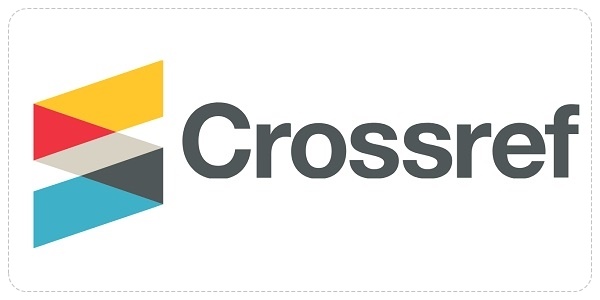A Sociological Review of School-Based Learning Laboratories
Abstract
Keywords
Full Text:
PDFReferences
Adarbah, H., & Jarjami, H. (2022). Active learning for Omani at-risk students through educational technology: a case of content-based language instruction. International Journal of Society, Culture & Language, 10(2), 125-136. https://doi.org/10.22034/ijscl.2022.550654.2583
American Sociological Assosiation. (2015). National standards for high school sociology. https://www.asanet.org/wpcontent/uploads/savvy/ASA%20HS%20Standards%20(Final).pdf
Amineh, R. J., & Asl, H. D. (2015). Review of constructivism and social constructivism. Journal of Social Sciences, Literature and Languages, 1(1), 9-16.
Azmi, M. N. L., Isyaku, H., Engku Ali, E. M. T., Hidayah, A. T., Yah@Alias, M. H., Anas, M., & Suhaimi, N. I. (2020). Teachers’ perceptions of islamic self-identity formation through language learning among students in selected religious secondary schools. Journal of Society, Culture & Language, 8(1), 82-91.
Better, A. (2013). Learning from Experience: Integrating Students’ Everyday Lives into the Urban Community College Sociology Classroom. American Sociologist, 44(4), 385–395. https://doi.org/10.1007/s12108-013-9192-7
Brugar, K. A. (2017). “We don’t have students colour maps anymore…” a survey of social studies teachers use of visual materials. Journal of Visual Literacy, 36(3-4), 142-163. https://doi.org/10.1080/1051144X.2017.1397380
Cruickshank, D., Jenkins, D. B., & Metcalf, K. (2003). The Act of Teaching. Mc-Graw Hill.
DeCesare, M. (2005). 95 Years of teaching high school sociology. Teaching Sociology, 33(3), 236–251. https://doi.org/10.1177/0092055X0503300301
Duverger, M., & Anderson, M. (2020). Introduction to the social sciences (RLE Social Theory). Routledge. https://doi.org/10.4324/9781003074458
Eun, B. (2023). Teachers learning to teach: professional development based on sociocultural theory for linguistically and culturally diverse classroom. Professional Development in Education, 49(5), 914-924. https://doi.org/10.1080/19415257.2021.1879224
Fairclough, N., & Fairclough, I. (2015). Textual analysis. In Routledge handbook of interpretive political science (pp. 186-198). Routledge. https://doi.org/10.4324/9781315725314
Ferreira, C., & Serpa, S. (2017). Challenges in the teaching of sociology in higher education. contributions to a discussion. Societies, 7(4), 30. https://doi.org/10.3390/soc7040030
Frederick, D. E. (2023). Automation, the growth of online information and digital formats: the story of libraries. Library Hi Tech News, 40(2), 1-11. https://doi.org/10.1108/LHTN-02-2023-0023
Gani, A., & Zulaikhah, S. (2021). The effectiveness of team assisted individualization learning model using the sociodrama method in increasing the concept of mastery ability in islamic education learning. Journal of Society, Culture & Language, 10(2), 125-136. https://doi.org/10.22034/ijscl.2021.247369
Gërxhani, K., & Miller, L. (2022). Experimental sociology. In Handbook of Sociological Science (pp. 309-323). Edward Elgar. https://doi.org/10.4337/9781789909432.00026
Greening, N. (2019). Phenomenological research methodology. Scientific Research Journal, VII(V), 88-92. https://doi.org/10.31364/scirj/v7.i5.2019.p0519656
Guggenheim, M. (2012). Laboratizing and de-laboratizing the world: Changing sociological concepts for places of knowledge production. History of the Human Sciences, 25(1), 99-118. https://doi.org/10.1177/0952695111422978
Harland, F., Stewart, G., & Bruce, C. (2019). Leading the academic library in strategic engagement with stakeholders: A constructivist grounded theory. College and Research Libraries, 80, 319-339. https://doi.org/10.5860/crl.80.3.319
Hassan, Z. (2014). The social labs revolution: A new approach to solving our most complex challenges. Berrett-Koehler Publishers.
Jedynak, W., & Kinal, J. (2014). Ethical and Technological Aspects of the Learning Process in Sociology. Procedia-Social and Behavioral Sciences, 140, 328-332. https://doi.org/10.1016/j.sbspro.2014.04.429
Lantolf, J. P., & Poehner, M. E. (2023). Sociocultural theory and classroom second language learning in the East Asian context: Introduction to the special issue. The Modern Language Journal, 107(S1), 3-23. https://doi.org/10.1111/modl.12816
Maiese, M. (2017). Transformative learning, enactivism, and affectivity. Studies in Philosophy and Education, 36(2), 197-216. https://doi.org/10.1007/s11217-015-9506-z
Majidah & Rullyana, G. (2024, December). The Digital Odyssey: Mapping Science and Research in Digital Libraries (1984–2023). In 6th Open Society Conference (OSC 2024) (pp. 228-247). Atlantis Press. https://doi.org/10.2991/978-2-38476-340-5_20
Mishra, R. (2018). Social constructivism and teaching of social science. Journal of Social Studies Education Research, 5(2), 1-13. https://doi.org/10.17499/jsser.22283
Ormerod, R. (2020). The history and ideas of sociological functionalism: Talcott Parsons, modern sociological theory, and the relevance for OR. Journal of the Operational Research Society, 71(12), 1873-1899. https://doi.org/10.1080/01605682.2019.1640590
Popa, Eugen. Blok, Vincent. & Wesselink, Renate. (2018). Social lab methodology manual. Wageningen University and Research.
Pribadi, B. A., & Susilana, R. (2021). The use of mind mapping approach to facilitate students' distance learning in writing modular based on printed learning materials. European Journal of Educational Research, 10(2), 907-916. https://doi.org/10.12973/eu-jer.10.2.907
Romero-Frías, E., & Robinson-garcía, N. (2017). Social labs in universities: Innovation and impact in medialab UGR. Comunicar, 25(51), 29-38. https://doi.org/10.3916/C51-2017-03
Suhartini, S., Sekarnigrum, B., Sulaeman, M. M., & Gunawan, W. (2019). Social construction of student behavior through character education based on local wisdom. Journal of Social Studies Education Research, 10 (3),276-291. https://doi.org/10.12973/eu-jer.10.2.907
Swedberg, R. (2012). Theorizing in sociology and social science: Turning to the context of discovery. Theory and society, 41, 1-40. https://doi.org/10.1007/s11186-011-9161-5
Williams, M. K. (2017). John Dewey in the 21st century. Journal of Inquiry and Action in Education, 9(1), 91-102. https://digitalcommons.buffalostate.edu/jiae/vol9/iss1/7
Woolfolk, A., Hughes, M., & Walkup, V. (2013). The psychology of learning and education. In Exploring Education Studies (pp. 101-131). Routledge. https://doi.org/10.4324/9781315833682
DOI: https://doi.org/10.17509/pdgia.v23i1.78659
Refbacks
- There are currently no refbacks.
INDEXED BY

This work is licensed under a Creative Commons Attribution-ShareAlike 4.0 International License
















